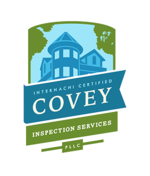Texas Adjuster Licensing & Training - Exam Preparation
Self-Study Requirement
Self-Study Exam
As required by TDI, 10 hours of self-study must be completed prior to the first day of classroom teaching.
This includes a 60-question online, open-book exam (https://www.classmarker.com/online-test/start/?quiz=dkk58d94e7190314).
A notarized affidavit must be presented to the instructor on the first day of class.
The self-study material, affidavit, and other documents are accessible in Student Files. Read and follow the instructions in "Read Me First".
Accessing the Online Exam
- When you open the exam, enter your email address and click "Start".
- On the following screen, create a password should you need to resume the exam later and click "Start".
- The next screen will prompt you for the self-study exam password, which is 6aUWuAYD.
Exam Prep
Psychology of Practice
Physiological research into how our mind and body reacts when taking an exam shows that during an actual test, anxiety and blood pressure levels increase. Due to these raised levels, we tend to second guess choices and doubt what we have learned. Normal study habits of reviewing notes, reading textbooks, flash cards, etc., help to some capacity. Practice is much more effective.
When an athlete is preparing for a competition, there is only so much exercise and watching video clips of other competitors to help prepare for the match. Martial artists, boxers, runners, swimmers, as well as football, basketball, and baseball players need to practice with others who will challenge them. When the military prepares for battle, they simulate a combat environment with explosions and gun fire.
Why do they practice competing before they compete? They practice because it helps develop muscle memory so reactions become automatic, thereby reducing the anxiety of the actual event. The same thought process applies to an academic exam. With frequent and consistent exam practice, anxiety and blood pressure levels are lessened.
Exams
Category Exams
These exams are designed to help you prepare for the state-approved, final exam. They are only available for students enrolled in the class while it is in session.
Prior to each class starting, students will receive login instructions for the assigned exams.
Upon receipt of the email, you can start the exams. You do not need to wait for the topic to be covered in class.
The exams are broken down into the different categories of the presented material and you can take each exam three times. If you choose an incorrect answer, the correct answer will be displayed with an explanation at the end of the exam. Each time you take one of these exams, the questions and answer choices will be randomized so you will never have the same exam twice.
The state-approved, final exam for the class is 150 questions and you will have less than three hours to complete it. You will need a minimum of 70 to pass, which is 105 questions. You will not need to take another exam for the Texas adjuster license.
These exams are designed for minimum mastery. Once you are able to pass the online exams, you should be able to pass the state-approved, final exam with ease.
Taking the Exams
When you take the exams, it is recommended to follow these steps:
- Using your textbook, take the exam.
- Review any missed questions from the first attempt and try to understand why there was a better choice. Then, without using your textbook, take the exam again.
- If you missed any questions during the 2nd attempt, study those more thoroughly.
The exams are separated into untimed and timed exams. The untimed exams allow you to review your notes as well as save and resume at a later time; whereas the timed exams are based on the time and percentage of questions for the final exam (150 questions in three hours). You cannot save and resume timed exams.
You have three attempts to pass it with a minimum score of 85.
Note: You must pass each of the assigned exams before taking the final exam.
Login: All Assigned Exams
The untimed category exams are listed below with the number of questions per exam:
- Insurance Terms [60 questions]
- Personal Lines [15 questions]
- Auto Liability [4 questions]
- Standard Fire Policy [5 questions]
- Additional Coverage [11 questions]
- Commercial Lines [15 questions]
- Inland & Ocean Marine [6 questions]
- Bonds [4 questions]
- Licensing Requirements [10 questions]
- Marketing Practices [11 questions]
- Adjuster Practices [5 questions]
- Workers Compensation [4 questions]
Timed Exams
The timed exams listed below serve two purposes.
- There are 60 vocabulary questions on the final exam, which is 40% of the exam. Aside from these specific questions, there are other questions on the exam with the assumption that you know the meaning of the vocabulary terms. You need a solid grasp of the terminology in order to pass the final exam and perform your duties as an adjuster.
- As these are timed exams, you must finish all questions within the allotted time or they will be marked incorrect, just like the final exam. These exams will help you develop the awareness of time spent on each question.
You will have three attempts to pass the exam.
Paid Exams
The following exams are available for an additional fee. Each fee covers three exams. For example, the fee for the 30-minute exam will let you take three 30-minute exams. No two exams will be the same as they use random selections of questions from all categories. Like the timed exams above, unanswered questions will be marked incorrect. You have three attempts to pass the exams.
These are available for students and non-students alike.



